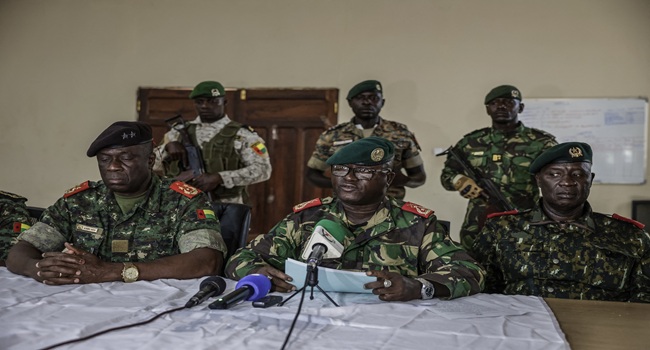Amnesty slams Tanzania for brutal crackdown, internet shutdown

In a statement, the rights group noted that the blackouts, which have affected large parts of the country for nearly a week, have coincided with reports of security forces using excessive force against post-election protesters.
Amnesty International has condemned the Tanzanian government for a partial internet and electricity shutdown following the country's October 29 general elections, raising concerns over human rights violations.
In a statement, the rights group noted that the blackouts, which have affected large parts of the country for nearly a week, have coincided with reports of security forces using excessive force against post-election protesters.
More To Read
- Tanzanian authorities orders petrol stations to limit fuel sales to boda bodas, tuk-tuks ahead of planned December 9 protest
- Tanzania challenges EU debate on Tundu Lissu and post-election crisis
- ICC urged to probe Tanzania over post-election civilian killings
- Tanzania opposition leader Lissu accuses President Samia of ignoring electoral reforms, fuelling violence amid political crisis
- US Senate Committee on Foreign Relations calls for probe into Tanzania election violence
- Tanzania cancels Independence Day celebrations amid outrage over alleged killings
Reports indicate that hundreds of protestors have been killed since the demonstrations erupted last week after Tanzanians took to the streets to protest the exclusion of key candidates from the polls in which President Samia Suluhu was declared the winner.
While the exact number of deaths remains unclear due to the internet shutdown and restrictions on international media coverage, reports suggest that fatalities could exceed 700.
"This is the third time in less than a year that Tanzanian authorities have resorted to an internet blockade to silence dissenting voices," said Vongai Chikwanda, Amnesty International's Deputy Director for East and Southern Africa.
"Authorities must immediately refrain from suppressing protests and instead respect, protect, and facilitate the right to peaceful assembly."
Amnesty also called on the Tanzanian government to carry out prompt, independent investigations into the killings, ensure accountability for those responsible, and provide victims and their families with access to justice.
"Authorities must also provide victims and their families with access to justice and effective remedies," said Chikwanda.
Further, Amnesty also urged Tanzanian authorities to stop blocking access to information, including for international media, and to allow journalists to report freely by restoring internet access and essential public services.
"The authorities must also allow both local and international media to freely report on the human rights situation in the country and refrain from restricting access to information, both online and offline, including by immediately restoring internet access and access to basic public services," Chikwanda said.
"The ongoing restrictions are making it difficult to verify information and to document election-related human rights violations."
The internet blackout has also been condemned by the African Commission on Human and Peoples' Rights (ACHPR), which said it violates Article 9 of the ACHPR, guaranteeing the right to receive information and to express and disseminate it.
"The Commission calls upon the Government of Tanzania to exercise its duty of protecting human rights in the country, by ensuring that the citizens' right to freedom of expression and access to information are respected and protected," said ACHPR in a statement over the weekend.
On Monday, during her swearing-in ceremony in Dodoma, Suluhu accused foreign actors of instigating the protests and unrest, insisting that the acts were inconsistent with Tanzanian values.
Top Stories Today















































